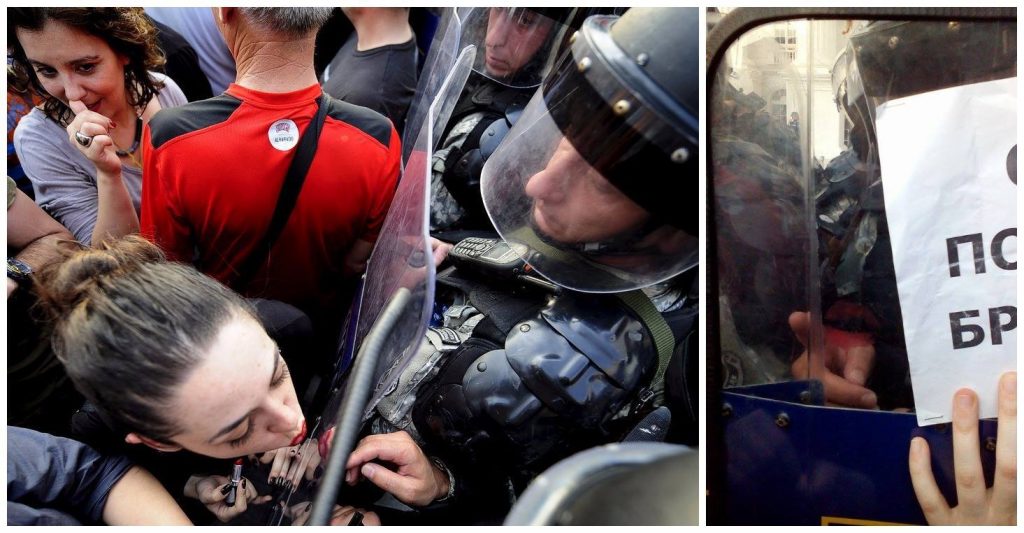
“At this time, it is important that all citizens, regardless of their differences, understand that we are facing a political machine that threatens our right to life through the systematic destruction of our institutions,” Golubovska explains.
“We are not only here to demand justice for Martin Neshkovski, but to also stand united against the use of police brutality in the establishment of a dictatorship,” says Macedonian activist and protester Jasmina Golubovska in an exclusive interview with Balkan Diskurs.
On 5 May, protests began in Skopje after the leader of the main opposition party released recordings in which representatives of the ruling party were speaking openly about the murder of Martin Neshkovski.
Martin was a young man who was beaten to death by Igor Spasov, a member of the Macedonian police, during the public celebrations that followed the 2011 elections. Spasov was sentenced to 14 years in prison, but the recently released recordings aroused suspicions among a large portion of the Macedonian public who believe the governing party is standing behind this murder.
In addition to demanding a final resolution regarding the details of Martin’s murder, protesters are venting their frustrations with the country’s imposed political and social systems. Golubovska explained that the people should have the right to freedom of speech without the consequence of repression, to freely protest and question the authorities, and to be involved in the decision-making process.
According to Golubovska, the demands of the Macedonian citizens stem from their common desire to have a decent life in a 21st-century, democratic society, without fear of governmental and political imposition. Golubovska reveals that the only way to restore democratic values in Macedonia is through the resignation of the ruling party, the enforcement of criminal accountability regarding the way this regime was both established and has been run.
“At this time, it is important that all citizens, regardless of their differences, understand that we are facing a political machine that threatens our right to life through the systematic destruction of our institutions,” Golubovska explains.
Unfortunately, the protests have been repeatedly followed by vandalism, which has promptly been halted by the Macedonian police. Golubovska states that this is a natural reaction from discontented citizens and is to be expected. The second day of protests was peaceful, with a group of citizens (mostly women) standing between the police and protesters, calming tensions between the two sides.
“The police also need to understand that we are also doing this for them. They must decide to stand beside us, not against us,” says Golubovska.
The protests in Skopje are not the only reason Macedonia has made recent headlines in both the regional and international media. On 9 and 10 May, the northern Macedonian town of Kumanovo suffered an attack by a group of 30 armed men that left several people dead, resulted in the evacuation of a large number of residents, and destroyed several buildings and other infrastructure.
Both the media and Macedonian officials have described this event as a terrorist attack, which has not only served to further deepen existing tensions, but has also triggered fear among Macedonian citizens.
Golubovska remains determined, stating that the work of building a just world is difficult, but possible, adding that there is no room for giving up on efforts to achieve this goal.
“Do not let political parties obscure your reasoning with poverty, war or nationalism. Take action and take the responsibility to improve the communities in which you are living. It’s your future, so shape it,” she adds.






